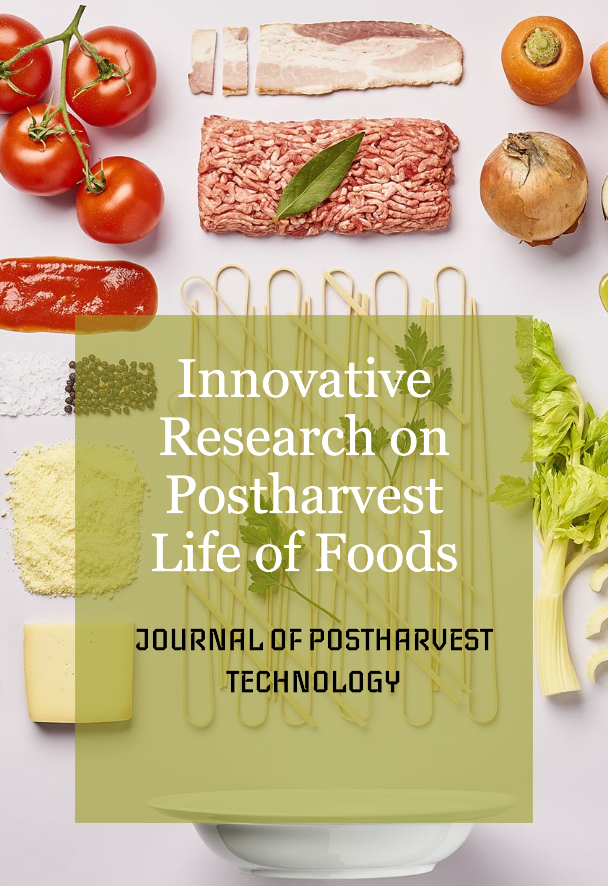Dry Flowers – A Boon to Floriculture Industry
Keywords:
Dry flowers, postharvest, value addition, floriculture, drying methodsAbstract
Dry flowers in floriculture have been gaining impetus with the rapidly growing floriculture industry in India. Value addition in form of floral or plant part drying increases the economic value and consumer appeal of floricultural commodities. Dried flowers are exported as assortments of value added items. In this review the scattered information and data on Indian market of Dried flowers, plants and plant materials suitable for drying and different drying methods of flowers and other ornamental plant parts, packing and transportation are being compiled which would be useful for further studies. This can eventually be helpful in drawing the attention of the researchers and scientists to work on it.
References
Bhutani, J.C. 1990. Capturing nature, a way with flower “Everlastings”. Indian Horticulture. 34(4): 15- 19. Bhutani, J.C. 1995. Drying of flowers and floral craft. Advances in Horticulture Ornamental Plants. 12: 1053-1058. Bryan, L. 1992. Drying flower and herbs. Harlexton Publishing Ltd, Linecolnshire, UK, 48p
Chen, W., Gast, K.L.B and Smithey, S. 2000. The effects of different freeze-drying processes on the moisture content, colour and physical strength of roses and carnations. Scientia Horticulturae. 84(3/4): 321-332
Dahiya, D.S. 2003. Dehydration of annual chrysanthemum (Chrysanthemum coronarium). Acta Horticulturae. 624: 385-387. Datta, S.K. 1997. Dehydration of flowers and foliage and floral craft. NBRI Bulletin No 3, EBIS, NBRI, Lucknow. 20p. Datta, S.K. 2001. Dehydration of flowers and foliage in floral crafts. Floriculture Today. 5:11-12
Desh Raj. 2006. Drying of attractive plant parts and flowers. In: Advances in ornamental horticulture. Pointer Publishers. 5: 189-198.
Dubois, P and Joyce, D .1989. Drying cut flowers and foliage. Farm note no 10/89. Western Australian Department of Agriculture. 3p.
Geetha, C.K., Shalini, M., Rajeevan, P.K and Valsalakumari, P.K. 2002. Effects of desiccants on drying of Indian blue water lily (Nymphaea stellata Wild). (abstract) In: National symposium on Indian floriculture in the new millennium, Feb 25-27, 2002, Indian Society of Ornamental Horticulture, IARI, NewDelhi. p 88.
Gill, S.S., Bakhshi, R. and Arora, S. 2002. Standardization of drying methods for certain cut flowers. Proceedings of the national symposium on Indian floriculture in the new millennium, Lal Bagh, Bangalore. 357-358.
Kher, M.A and Bhutani, J.C. 1979. Dehydration of flowers and foliage. Extension Bulletin No 2, NBRI, Lucknow.20p.
Lourdusamy, D.K., Vadivel, E and Azhakiamanavalan, R.S. 2001. Research and development in dry flower technology. Floriculture Today. 5: 8-13.
Lourdusamy, K.1998. Studies on drying, bleaching and dyeing of annual flowers and dry floral crafts. MS.c Thesis submitted at TNAU, Coimbatore, pp 106-108
Malcolm, H. 1994. Guide to arranging dried flowers. Step by step handbook of growing, drying and displaying, Dorling Kindersley Ltd, London.
Mishra, R.L., Kumar, N. and Ranjan, J.K. 2003. Exploring export potential of dried flowers, floral crafts and value added products. Indian Horticulture.47: 47-48.
Paul, D and Shylla, B. 2002. The art of flower drying. In: Mishra RL and Mishra S (eds). Floriculture Research Trends in India. pp 41-46.
Perry, L. 1996. Preserving summer flowers. Website: http://ctr.uvm.edu/ctr/preserve.html.
Raghupathy, R., Amuthan, G and Kailappan, R. 2000. Dried flowers: Significance. Kisan World 28:39.
Raju, M.S. and Jayanthi, R. 2002. Drying techniques for china aster cut flowers. (Abstract) In: National symposium on Indian floriculture in the new millennium, 25-27 February 2002, ISOH, New Delhi. 87p.
Rothenberger, R.R. 2000. Drying flowers and foliage for arrangements. http://www.muextension.missoure.edu/explor/agguides/hort/go6540.html.
Ruth, 2000. Pollyrosestationers Freezedried flowers.Website: http://www.pollyrose.com.
Safeena, S.A., Patil, V.S and Naik, B.H. 2006b. Response of drying in hot air oven on quality of rose flowers. Journal of Ornamental Horticulture. 9(2): 114-117
Sheela, V.L. 2008. Flowers for trade. New India publishing agency. 10:65-76
Singh, A., Dhaduk, B.K and Shah, R.R. 2004. Effect of different temperature and embedding media on flower dehydration of zinnia (Zinnia linearis Benth). Indian Journal of Horticulture. 61(3): 249-252.
Sujatha, A.N., Damodaran, T and Shiva, K.N. 2001. Dry flower industry in Andamans. Kisan World. 28:28
Trinklein, D. 2000. Drying flowers and foliage for arrangements. Website: http:// www. muextension. missouri.edu/explore/agguides/hort/ go6540.html.
Verma, A.K. Gupta, A. Kumar, D and Dhiman, M.R. 2012. Post harvest technologies for commercial floriculture. New India publishing agency. 198-204
Westland, P. 1995. Step by step dried flowers. Anness Publishing Ltd, London. pp 15-20.
White, P., Tijia, B and Sheehan, M.R. 2002. Drying and preserving plant materials. University of Florida Co-operative Extension Service.




